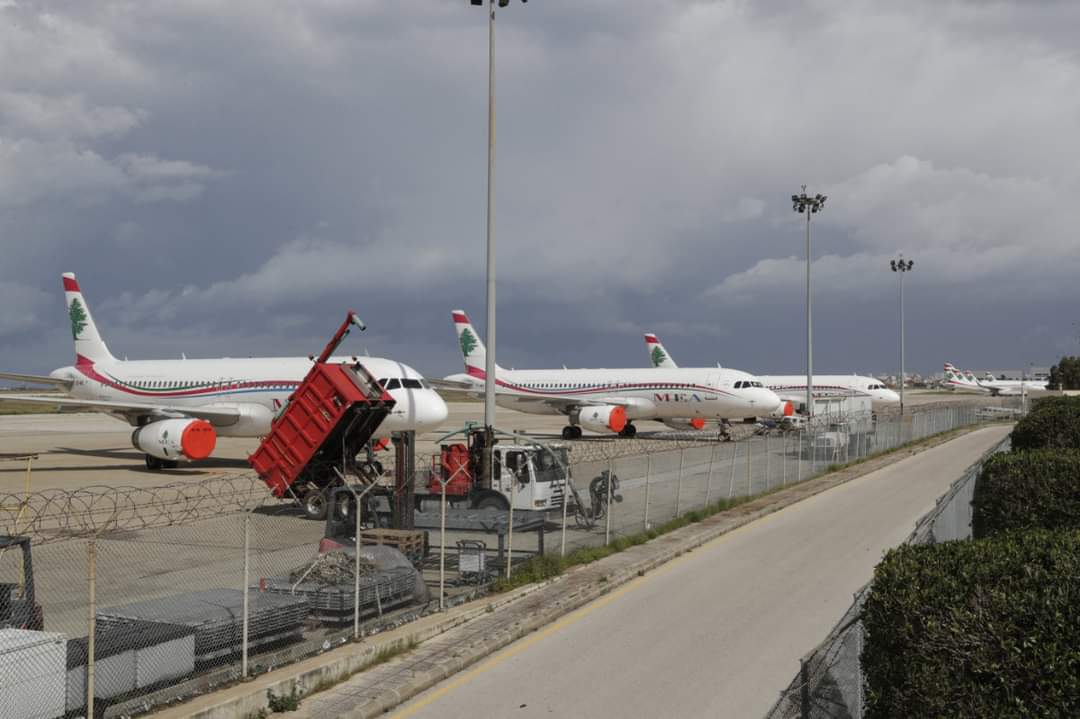


We had reported earlier on the notices from Insurance companies to Israeli and Lebanese Carriers on the cancellation of some coverage due to war risk in the region.
Though Israeli carriers have not responded with any action, Middle East Airlines (MEA) - the flag carrier of Lebanon, has shown seriousness and planning to not only reduce its capacity, but also moving many of its aircraft to airports outside the country to avoid damages to them.
No guesses here, and one can understand, It will only run a skeleton handful of flights from Beirut for now, amid rising tension between Israel and Hezbollah.
The carrier has already relocated five of its planes to Turkey last week , and in a recent decision , it mulls ferrying a number of its aircraft from the fleet to neighboring countries as a precaution in case of conflict, which will eventually affect the number of its daily flights it operate.
The sudden decision has emerged after changes to the company’s insurance coverage on war risks , following an unstable situation in the region involving Israel, Palestine and Lebanon.
Lebanon's national carrier, Middle East Airlines, cuts more than half of its flights as tensions along the border with Israel prompted more Western countries to warn against travel to the country.
In a televised interview on Friday, Mohammed El-Hout, chairman of MEA, said only eight of the company’s 22 planes would operate as of next week, with the rest relocated to other airports. Therefore, only one third of the company’s flights scheduled before the crisis, will remain operational.

Among the surrounding region, Cyprus, Oman and Doha are seen as suitable options for the carrier, however the company may end up relocating upto 10 of its aircraft to Cyprus for safekeeping, as per some sources.
El-Hout said insurance companies began to worry about the risk of war when the Israel-Hamas “Operation Al-Aqsa Flood” started, and an assessment was carried out in cooperation with them.
According to the Chairman of MEA, insurance covers for war risks have been reduced by approximately 80 percent.
“However, our priority is to secure communication between Lebanon and the rest of the world,” he said.
“We don’t have security information about a possible attack on the airport in Lebanon but references and all the information we got indicated that the operations will remain within the rules of engagement and under control in southern Lebanon,” el-Hout affirmed.
Similar concerns arose during the 2006 July War when Israeli airstrikes targeted Beirut's Rafic Hariri International Airport.
“In 2006, the airport was bombed and there were six planes stuck in Lebanon. Through contacts, the Israelis gave us a margin of time to evacuate the planes. However, today the situation is different and it's about insurance companies,” he said.
In the prevailing situation, air travel in the region will take a hit, as several countries advised their nationals to leave Lebanon amid rising regional tensions.
Oman's embassy in Beirut has already advised Omani citizens to leave Lebanon immediately “due to the events taking place in the region” in a post from the embassy on social media handle X.
Tourism companies are anticipating an weak turnaround now onwards. Already, travellers from western countries and European groups planning to visit Lebanon during October and November have canceled their reservations following their countries' travel warnings about going to Lebanon.
Carriers like Swiss International Airlines, have also announced a temporary suspension of its flights between Switzerland and Beirut until October 28.
Related News....
